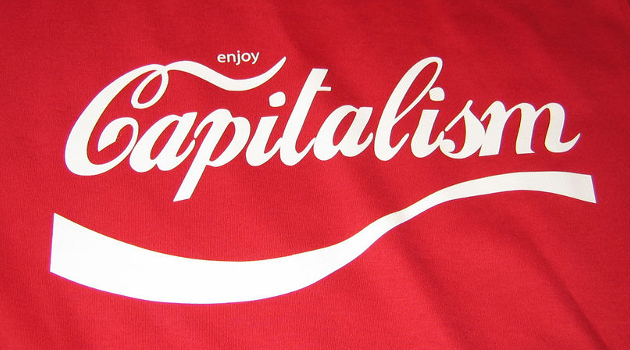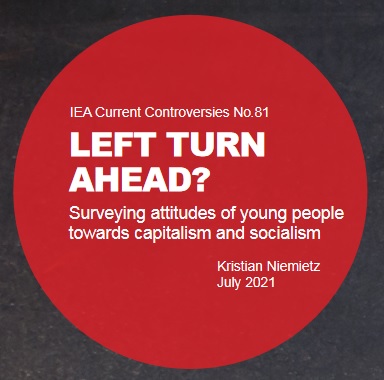I like capitalism, both because it’s moral and it delivers superior results compared to any alternative.
I even have a 2-part series (here and here) on “defending capitalism” and a 5-part series on the “case for capitalism.”
Perhaps most important, it’s a system that delivers great results if the goal is lifting people out of poverty.
Is it possible, though, that “capitalism” is a tarnished word?
That may be the case, according to new polling data from the United Kingdom.
Edward Malnick recently wrote about Frank Luntz’s research, which is finding knee-jerk hostility to the “C” word.
Dr Frank Luntz is testing public opinion in Britain to find an alternative to “capitalism”, after 170 years of use, because he fears it is becoming a “bad word”. …Capitalism itself is already a “bad word” in the US and is fast becoming so in the UK too, he says, adding: “It’s one of the key things I’m trying to figure out … does this country need an alternative to the word capitalism? I think it does. We’re about to find out.” Questions on capitalism, and voters’ approach to it, form part of a giant survey Dr Luntz has put together as part of a project for the Centre for Policy Studies (CPS) think tank, at which he has based himself for the summer.
Nick King of the Centre for Policy Studies suggests we use something other than “capitalism” when describing an agenda of limited government.
…language matters. Capitalism is unpopular. But to many of capitalism’s advocates, terms like free enterprise and open markets can be used interchangeably with it – and other polling suggests these concepts are more favourably received. If a phrase is more appealing than capitalism to those who reject it as a concept, then it makes sense for those who believe in the benefits of this system to adopt the language which people more readily accept.
I’m perfectly happy to talk about “free enterprise” rather than “capitalism.”
I even wrote about making that verbal shift back in 2016, though I obviously still frequently use “capitalism” when talking about economic liberty.
But perhaps I need to be more disciplined. Especially if I want my message to be heard by young people.
Kristian Niemietz of London’s Institute of Economic Affairs has a very depressing assessment of what millennials are thinking.
Surveys show that there is a lot of truth in the cliché of the ‘woke socialist Millennial’. Younger people really do quite consistently express hostility to capitalism, and positive views of socialist alternatives of some sort. For example, around 40 per cent of Millennials claim to have a favourable opinion of socialism and a similar proportion agree with the statement that ‘communism could have worked if it had been better executed’. …67 per cent of younger people say they would like to live in a socialist economic system. Young people associate ‘socialism’ predominantly with positive terms, such as ‘workers’, ‘public’, ‘equal’ and ‘fair’. Very few associate it with ‘failure’ and virtually nobody associates it with Venezuela, the erstwhile showcase of ‘21st Century Socialism’. Capitalism, meanwhile, is predominantly associated with terms such as ‘exploitative’, ‘unfair’, ‘the rich’ and ‘corporations’. …When presented with an anti-capitalist statement, the vast majority of young people agree with it… However, when presented with a diametrically opposed pro-capitalist statement, we often find net approval for that statement too. This suggests that when young people embrace a socialist argument, this is often not a deeply-held conviction.
None of this is a surprise. I’ve written a couple of times about the foolish views of young people.
Heck, I was writing about this problem way back in 2013.
I’m tempted to conclude that young people are simply stupid and we shouldn’t allow them to vote.
But I realize that’s not a constructive sentiment. So perhaps instead we should send them to live for a year in Greece, Argentina, or Italy. And if that doesn’t sober them up, they can spend a second year in Venezuela, North Korea, or Cuba.
———
Image credit: Jacob Bøtter | CC BY 2.0.





